Looking to Get Out
In which Norm confronts BEAU IS AFRAID and revisits THE TRUMAN SHOW. For his own good, you understand.
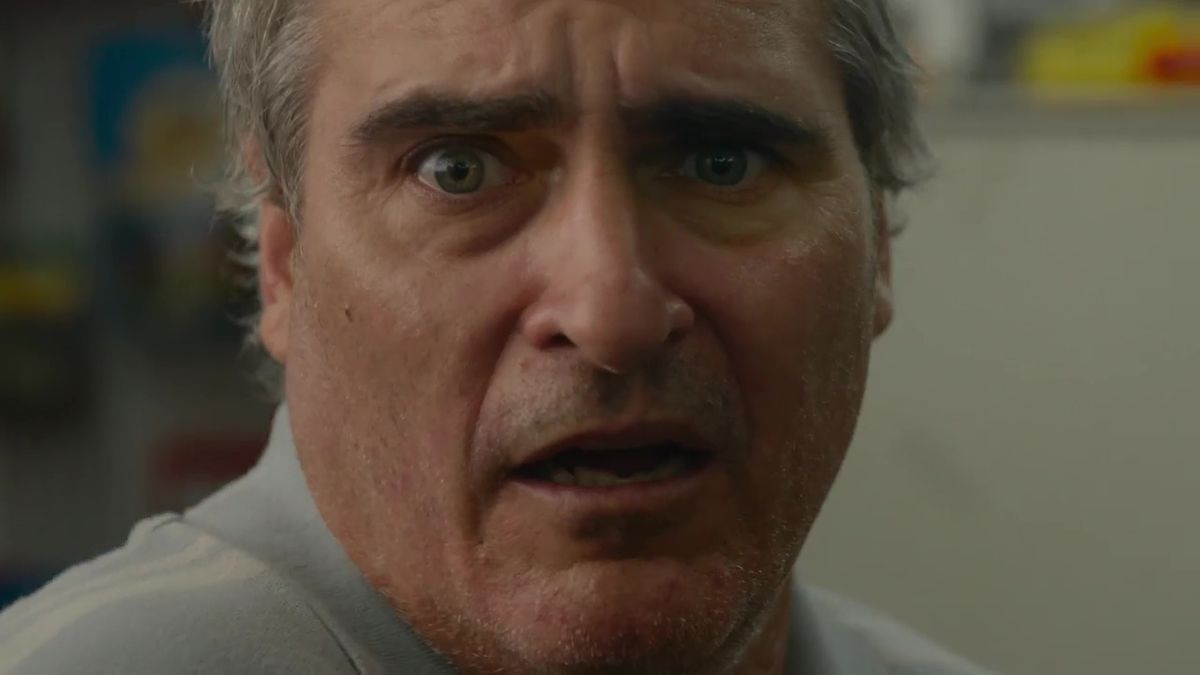
I like Ari Aster a lot. He’s always a fun interview, thoughtful and willing to follow an idea wherever it takes him, and his films offer rich veins of arch weirdness and raw emotion that make them feel like nothing else; even if they don’t exactly scare or disturb me, they have something uniquely their own. Watching them is like riding through a funhouse of dread, with a genuine catharsis at the end of the ride.
When I revisited Hereditary and Midsommar in this newsletter last fall, I summed up his films as being about “vulnerable people who learn they can’t depend on the people they most need to”, and lo and behold, along comes his magnum opus Beau Is Afraid to write that assessment in ten-foot-high letters of fire.
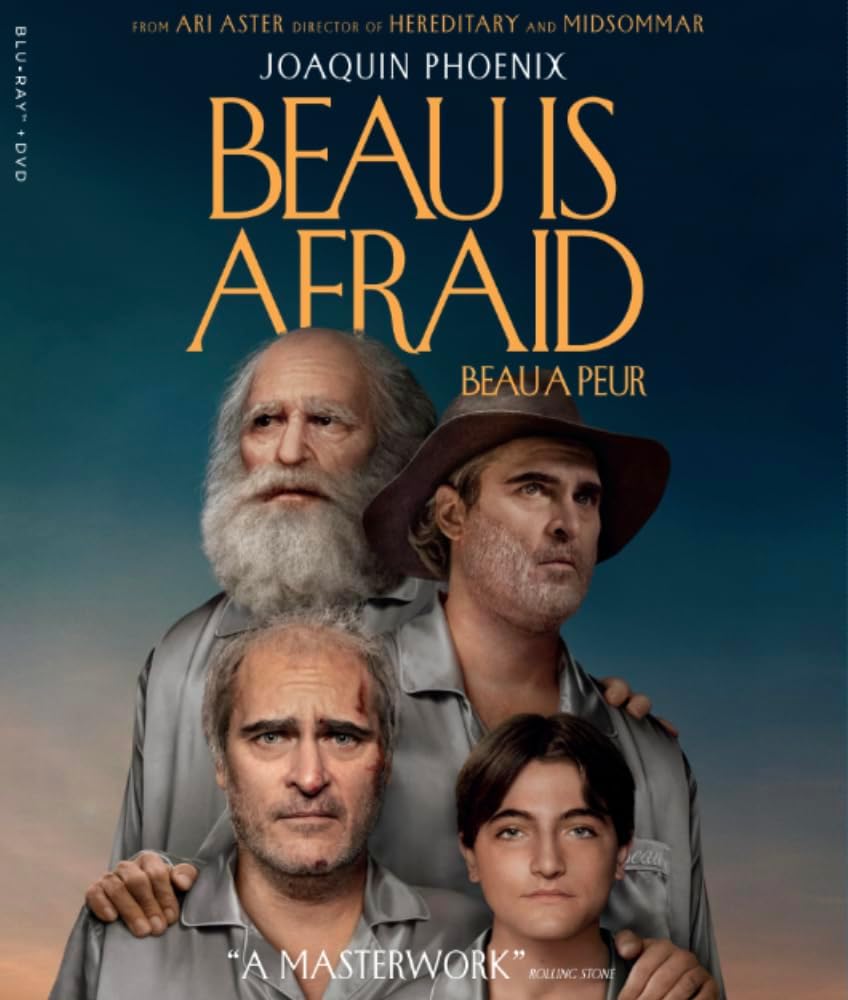
Beau Is Afraid is, without question, Ari Aster's most impenetrable and uncommercial project to date. It’s also his first project, in a way: He wrote it more than a decade ago, extrapolating the plot from a short film he’d made called Beau, and spent years trying to make it happen, to no avail; only once he’d found success with his genre films was he able to convince A24 to make this one. And I can understand the studio’s reluctance: Beau Is Afraid is not an easy sell. It's three solid hours of refractive Charlie Kaufman gamesmanship layered on top of Aster's obsession with disintegrating protagonists, horrible parents and clouded memories. It's broad and goofy and weird and pitched to 11 from the very beginning, a series of panic attacks with a 20-minute lyrical interlude tucked into the middle, as a treat.
But I think I liked it.
Beau Is Afraid carves a space between domestic absurdism and existential horror in a really interesting way, and the episodic nature has a yes-and quality that I kind of loved. I kept thinking of Jason Mendoza’s line from The Good Place: “Molotov cocktails are a solution to every problem – I throw one, and then I have a different problem.” Aster ends every episode with at least two Molotov cocktails, and I have to respect the game.
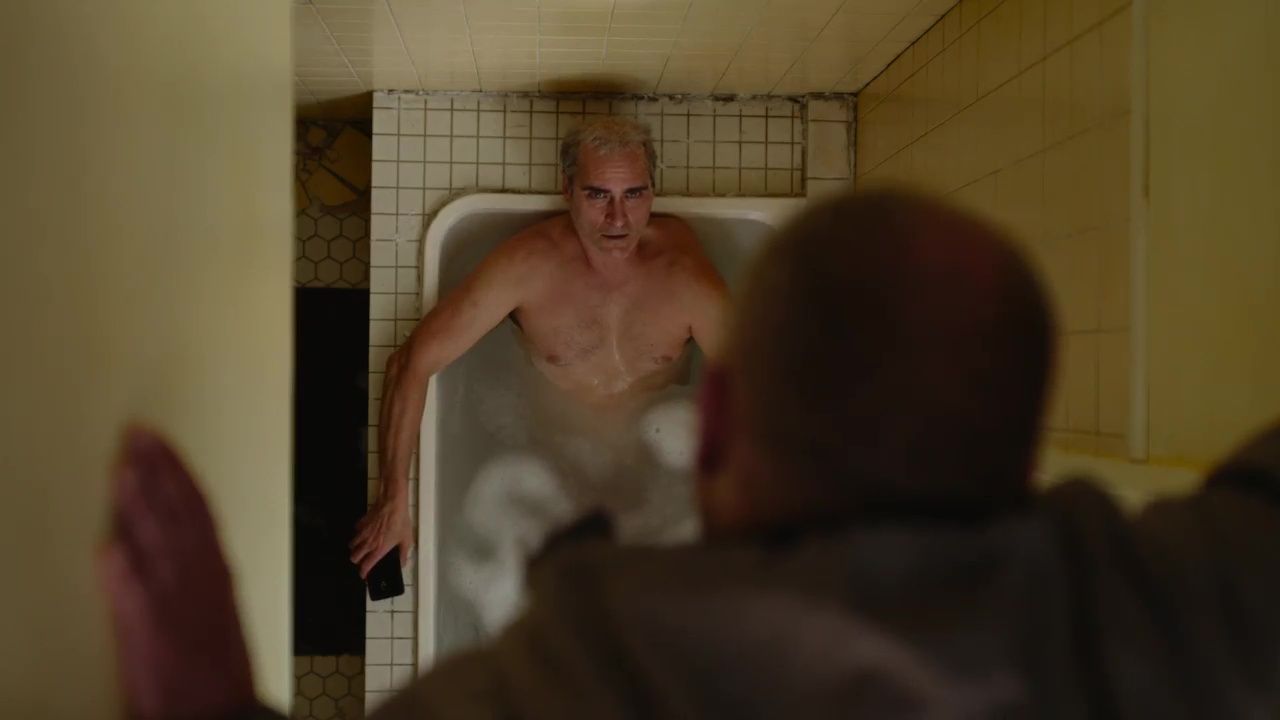
On paper, Beau Is Afraid is about a middle-aged man trying to get from his apartment to his mother’s house. And while that is more or less what happens, it in no way captures what the film is about, which is powerlessness and anxiety.
In the sole supplemental feature included on Sphere’s Blu-ray – which, aside from the French audio and subtitle options, is identical to the Lionsgate disc released in the US – Aster describes Beau as being “like a videogame, but your character doesn’t do anything and none of the buttons work.” Which, exactly yes. It’s a paralytic nightmare, with Joaquin Phoenix’ hapless, panicked Beau Wasserman stumbling terrified and unprepared through an increasingly hostile landscape. His therapist (Stephen McKinley Henderson) doesn’t seem terribly sympathetic to his plight, prescribing new drugs with very specific applications and warnings. As things get worse, other people offer to help – but there are almost always strings attached. Maybe it’s all a dream; maybe none of it is. The film is silent on which would be worse.
Phoenix is great, full stop. He’s unparalleled at playing confused, frantic characters – see also Signs, Inherent Vice and maybe even The Master, come to think of it – and Aster gives him so much to work with. I have no idea how they found this together, but it’s a tour de force.
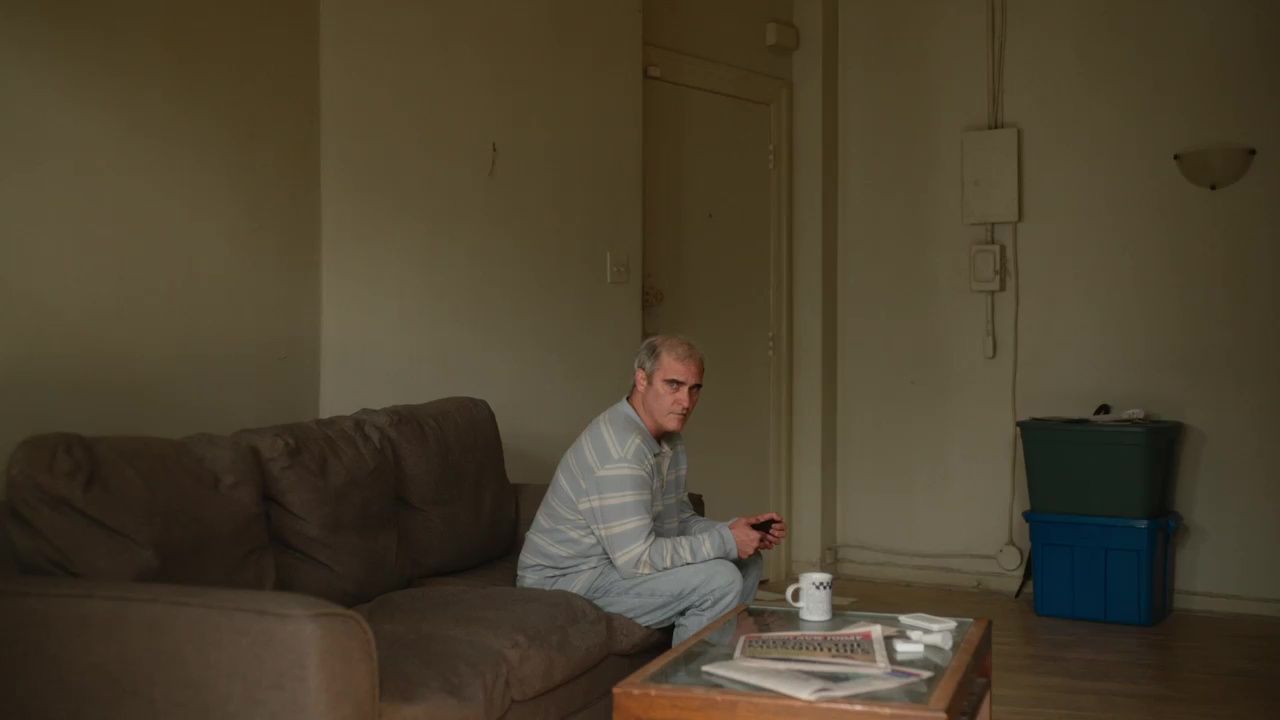
The rest of the cast is similarly all in, and the mixture of American, Canadian and European faces gives the film this inexplicable neverwhere vibe that adds to the surrealism. Anyone can show up at any time – sure, we expect Amy Ryan and Nathan Lane to turn up as too-cheerful suburbanites, but why is Denis Ménochet from Xavier Legrand’s Custody looming in their backyard? A sequence at an outdoor stage performance has local faces like Patrick Kwok-Choon and Julian Richings wandering around, but also Hayley Squires from I, Daniel Blake is there.
Théodore Pellerin’s name is in the credits; I have no idea which scene he was in, or which character he played. Two very distinctive character actors appear as voices hours before they show their faces; I haven’t felt this exact sense of giddy possibility in waiting to see who was going to materialize next since getting walloped by Darren Aronofsky’s mother! at a Saturday morning TIFF press screening. But then, if you’re an actor with any creative spark, why wouldn’t you agree to spend a few days in Montreal helping Ari Aster work some stuff out?
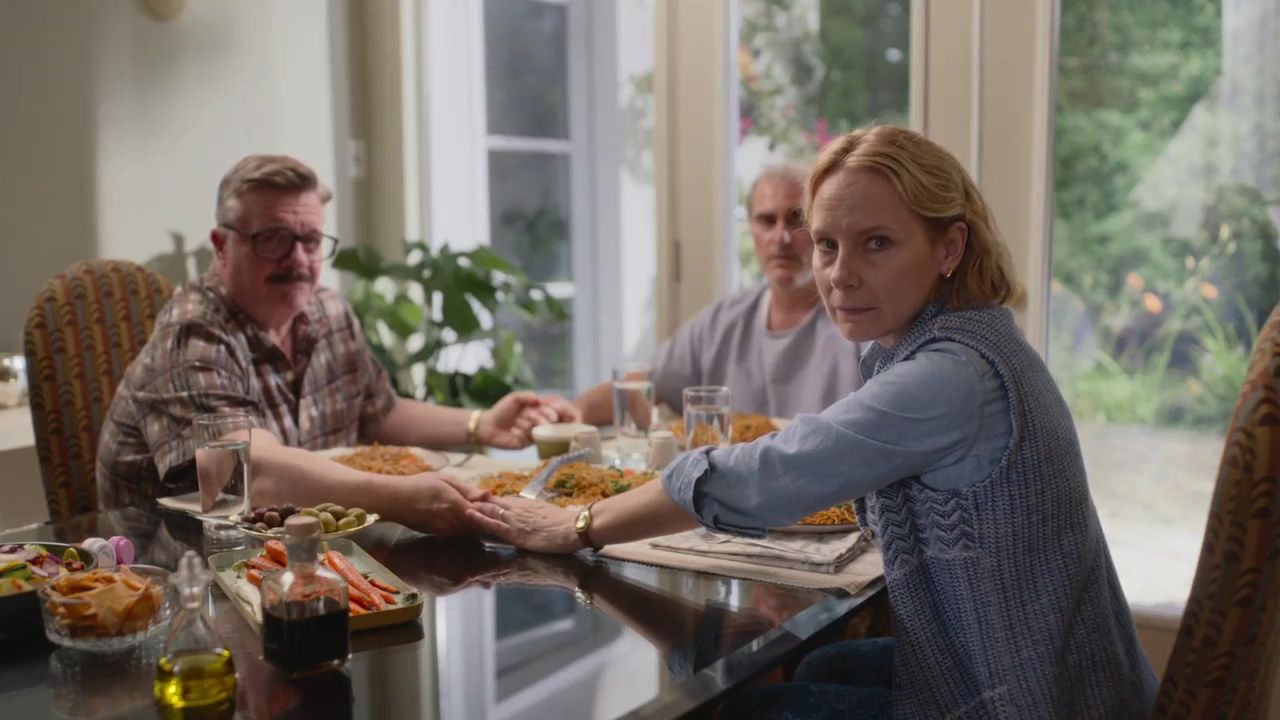
Want to see Zoe Lister Jones as an even more monstrous version of Fawn Moscato, the Los Angeles politician she played on a couple of seasons of New Girl? Want to see Parker Posey undercut her familiar whip-smart persona with notes of fragility and longing? Want to see Patti LuPone in the role she was born to play? It’s all here, and nowhere else, because that’s the amazing thing about Beau Is Afraid: Every one of these people is giving their absolute all, going full-tilt in the service of Aster’s vision. I have to respect the fact that this thing has been willed into existence, even if it only exists for one person. I wonder if it helped.
Weirdly enough, Beau Is Afraid arrives on disc just a couple of weeks after Paramount revisited The Truman Show in a 4K edition. Revisiting Andrew Niccol and Peter Weir’s prophetic 1998 satire a quarter-century later, it feels like a mirror-universe counterargument to Aster’s anxious cinema: Where Beau opens in a filthy, collapsing metropolis, The Truman Show plops us down in a perfectly manicured, exquisitely designed coastal town – which, of course, doesn’t exist.
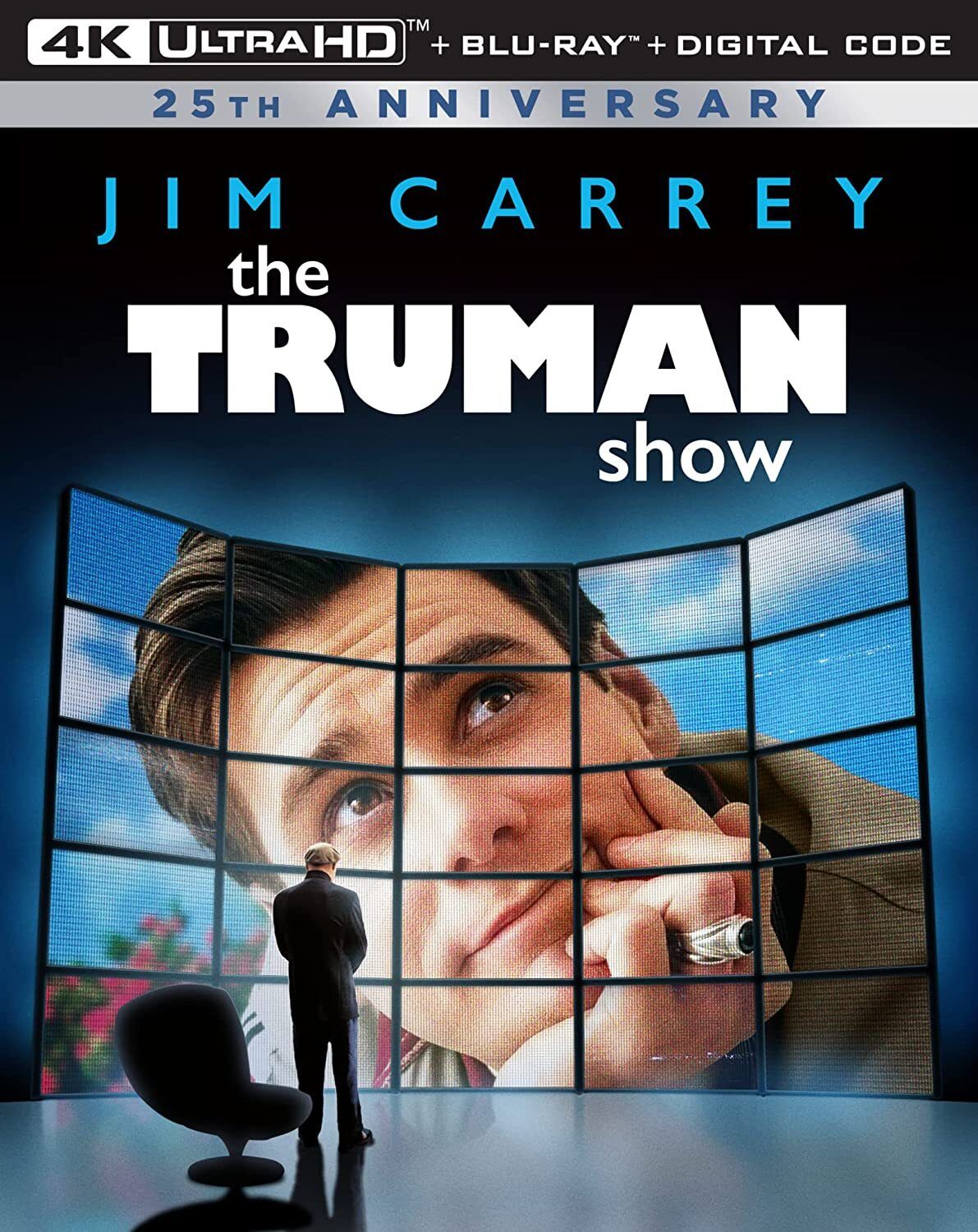
Truman Burbank – played by Jim Carrey in what looks more and more like the role of his career – is a cheerful small-town fellow, raised from birth in the artificial world of Seahaven Island. His wife, his friends and literally everyone he knows are actors; only Truman is unaware that everything is scripted and controlled, broadcast to the world on a live feed. The show is approaching its 30th anniversary, and Truman is starting to figure it out.
Where Beau Wasserman grew up small and fearful, Truman is cheerful and confident, polite and respectful, loved by all. Or at least that’s how he’s been engineered, over decades of careful conditioning and reinforcement by his own personal creator, Christof. Played by a beret-wearing, flinty Ed Harris, Christof is a self-absorbed, overconfident monster – a dumb person’s idea of a genius, his affect as derivative as Truman’s sitcom-husband personality. The success of the show over the decades has protected and insulated him, but I love the film’s none-too-subtle suggestion that he really only had the one idea and has been coasting on it ever since.
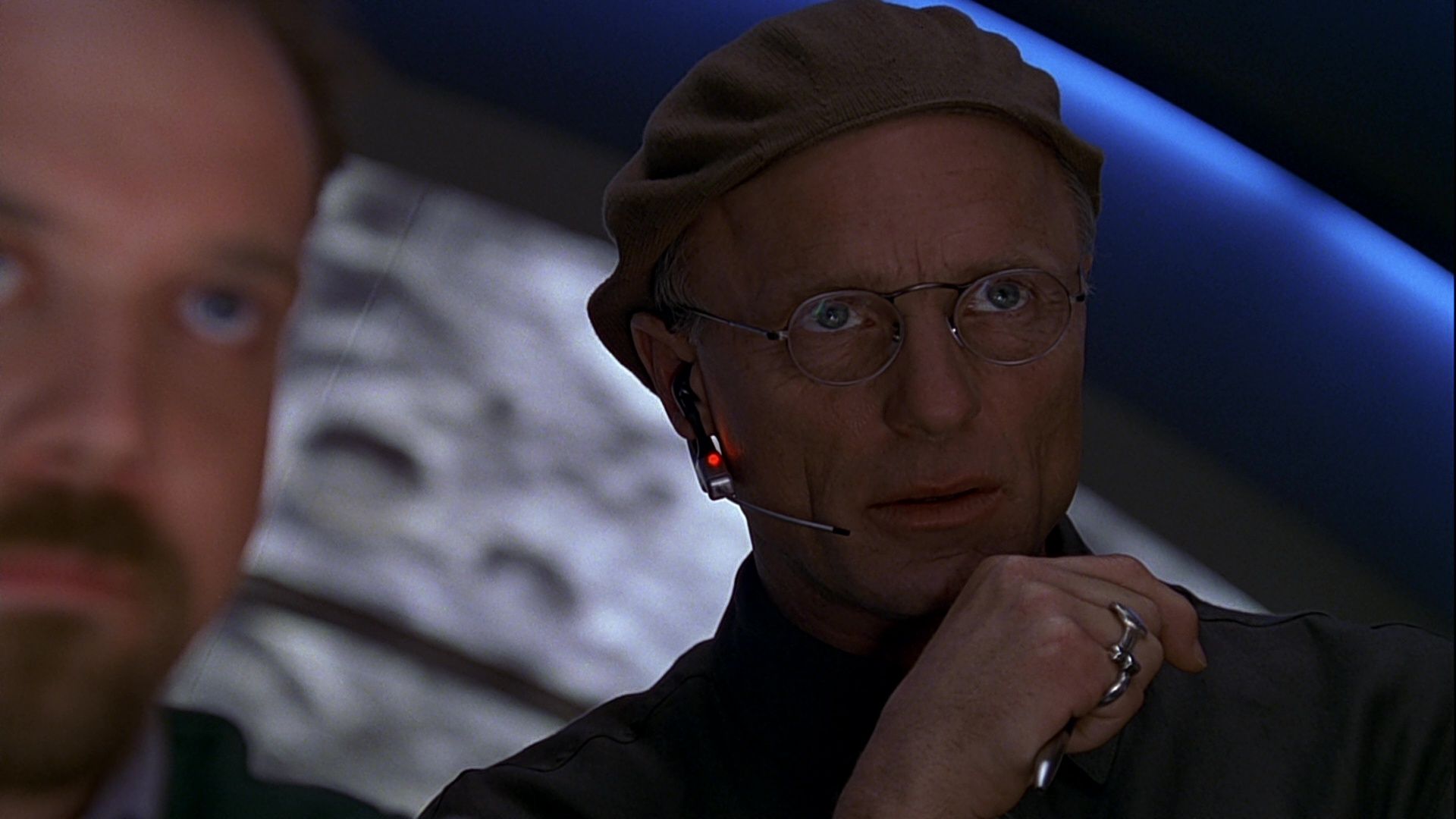
The Truman Show shifts back and forth between Truman’s “reality” and actual reality – which is to say, the world outside the terrarium of Seahaven – and I used to think that was a mistake. Wouldn’t it be more effective to see the world exclusively from Truman’s point of view, and share in his discovery of what’s really going on? Except now we know what that looks like, thanks to Dark City and The Matrix and dozens of knockoffs that followed – and in retrospect, Weir and Niccol aren’t interested in that plot point as a twist.
There’s something else going on here. I think The Truman Show wants us to understand how cruel this would be, how utterly monstrous Christof’s concept really is. This is a movie about a prison with one inmate and a thousand guards who are there to make sure he doesn’t suffer – but he suffers just the same.
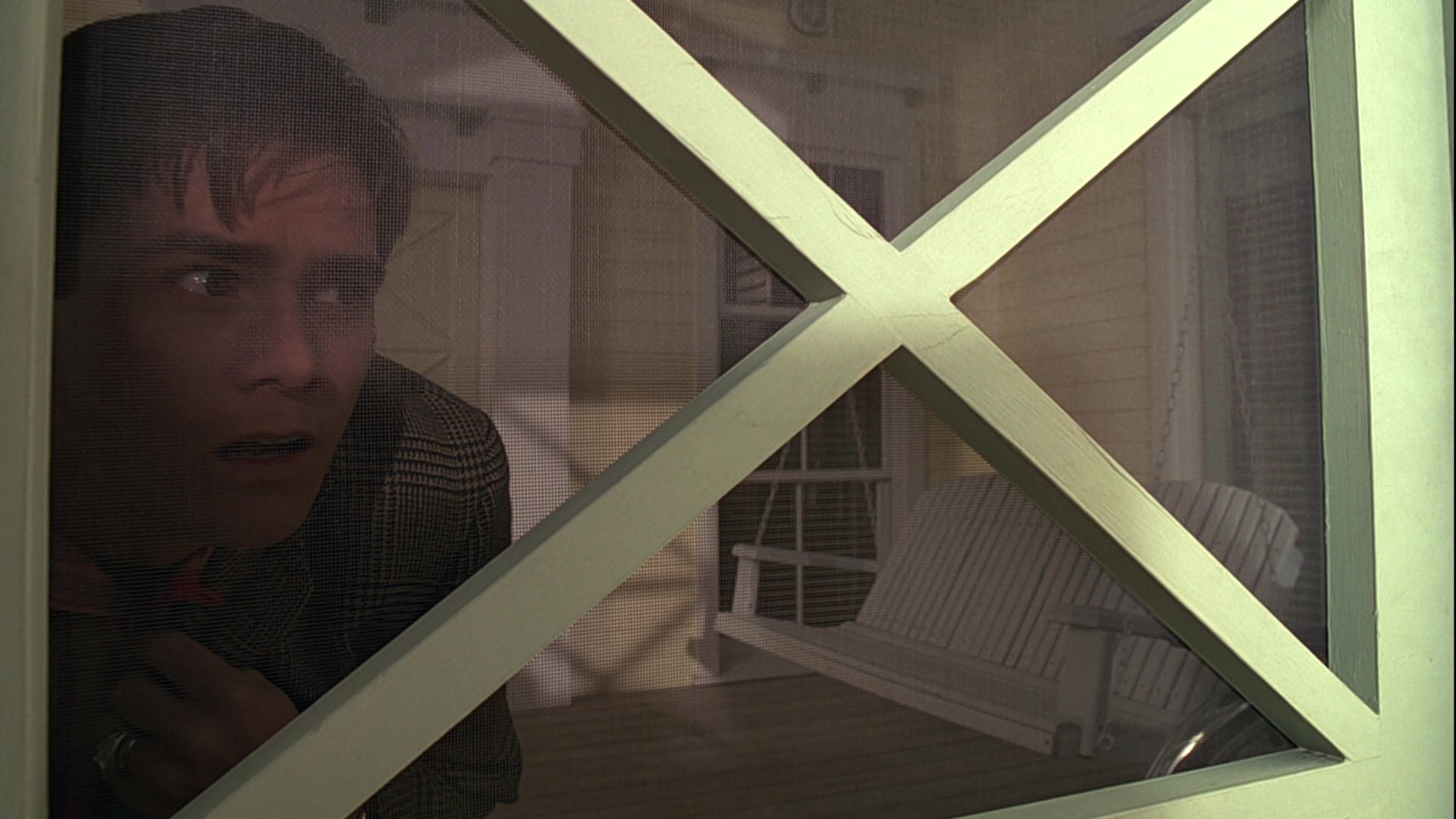
Niccol’s script keeps contrasting Christof’s philosophical bullshit with Truman’s earnestness, and Weir plays it like a philosophical tennis match, with Truman returning every one of Christof’s volleys without even understanding he’s holding a racquet. The film gives us the space to notice the rhythms, to see small beats in the actors’ performances, to watch the show even more closely than its fictional audience, who’ve been kinda tuned out for the last six or seven years. Honestly, the one thing that dates the film is its optimism about reality television; the idea that billions of viewers would be satisfied to just watch him go about his boring life, day after day, just doesn’t scan.
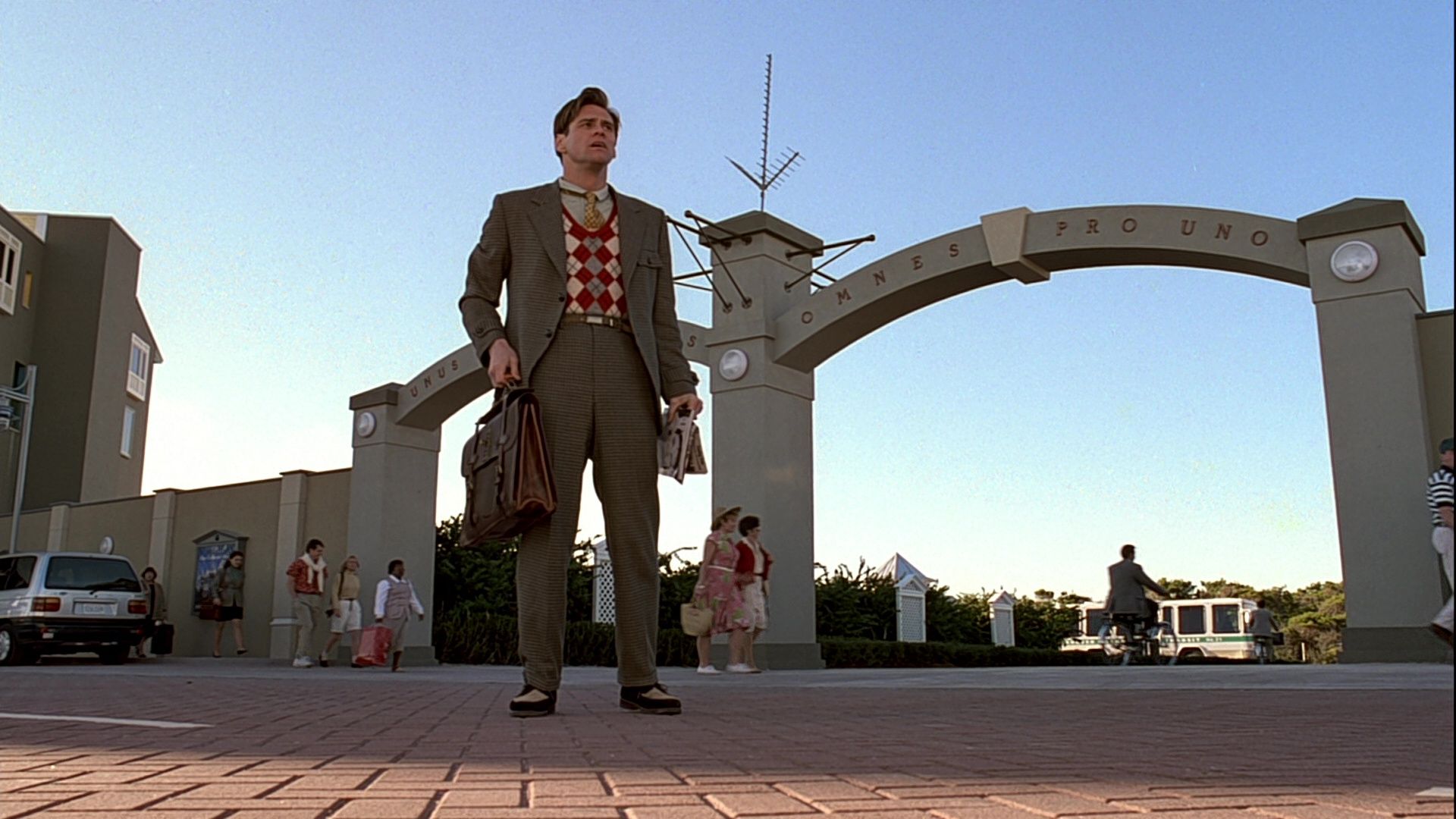
Carrey, always a masterful mimic, seems to have assembled Truman’s DNA out of Jimmy Stewart’s self-effacing charm and the nervous energy of Dick York and Dick Sargent in Bewitched, the better to immediately engage the sympathies of anyone who grew up watching them on TV. And when he finally explodes, it’s exhilarating … and even more so in the new restoration, which removes the digital slickness that was added in the early Blu-ray master to reveal a clarity and striking beauty to Peter Biziou’s images, and removes the last of the artifice from Carrey’s performance.
It’s an immaculate presentation, even more impressive given how it has to handle the film’s visual strategy: The world of the show has to look just a little bit wrong, even when we aren’t technically watching the broadcast, while the “real” world gets a different sort of push, from the stylized lighting schemes in Christof’s studio to harsher natural light sources. The soundtrack has been remixed into Dolby Atmos, which only really matters in the final scenes – huh, both Truman and Beau mount their climactic escapes in boats! – but the image is the real knockout here. The Truman Show looks brand-new.
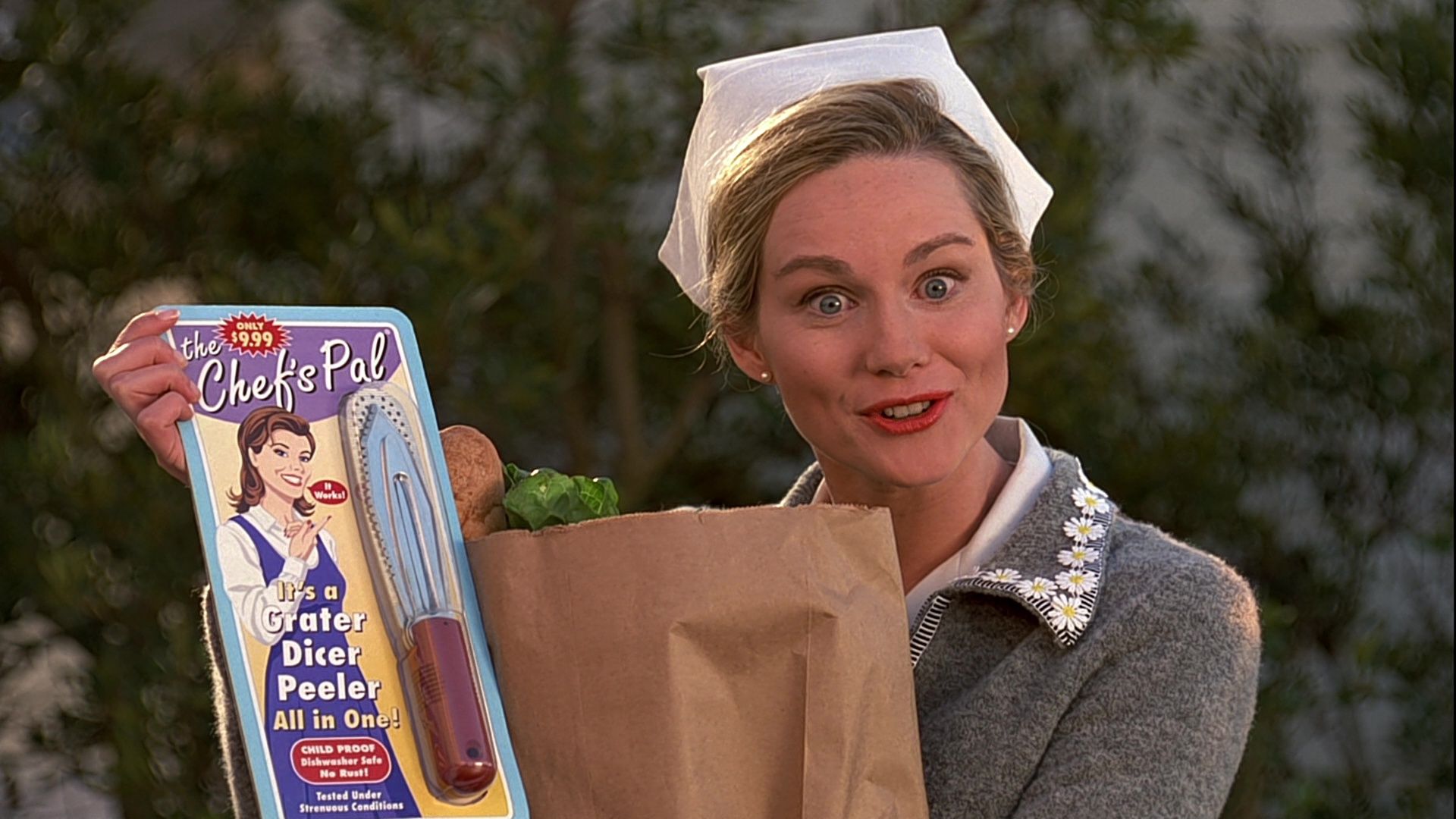
It’s a shame that Paramount didn’t commission any new supplements for the 4K release; like most of the label’s catalogue titles, the companion Blu-ray included with the UHD disc is the existing release, with a raft of special features originally produced for the DVD. They’re pretty good, but I would kill for a retrospective doc that actually engages with the film as a Rosetta stone for emotionally fraught Kaufmanesque narratives, cultural attitudes towards reality television and maybe even simulation theory. There’s a lot to unpack from the vantage point of 2023. Ask Beau Wasserman.
Beau Is Afraid is available in a Blu-ray/DVD combo from Sphere Media in Canada and Lionsgate Home Entertainment in the US; The Truman Show is available in a 4K/Blu-ray combo from Paramount Home Entertainment.
In the next paid edition: Criterion reintroduces us to Ranown Westerns and a watermelon woman. Upgrade your subscription so you don’t miss out!
